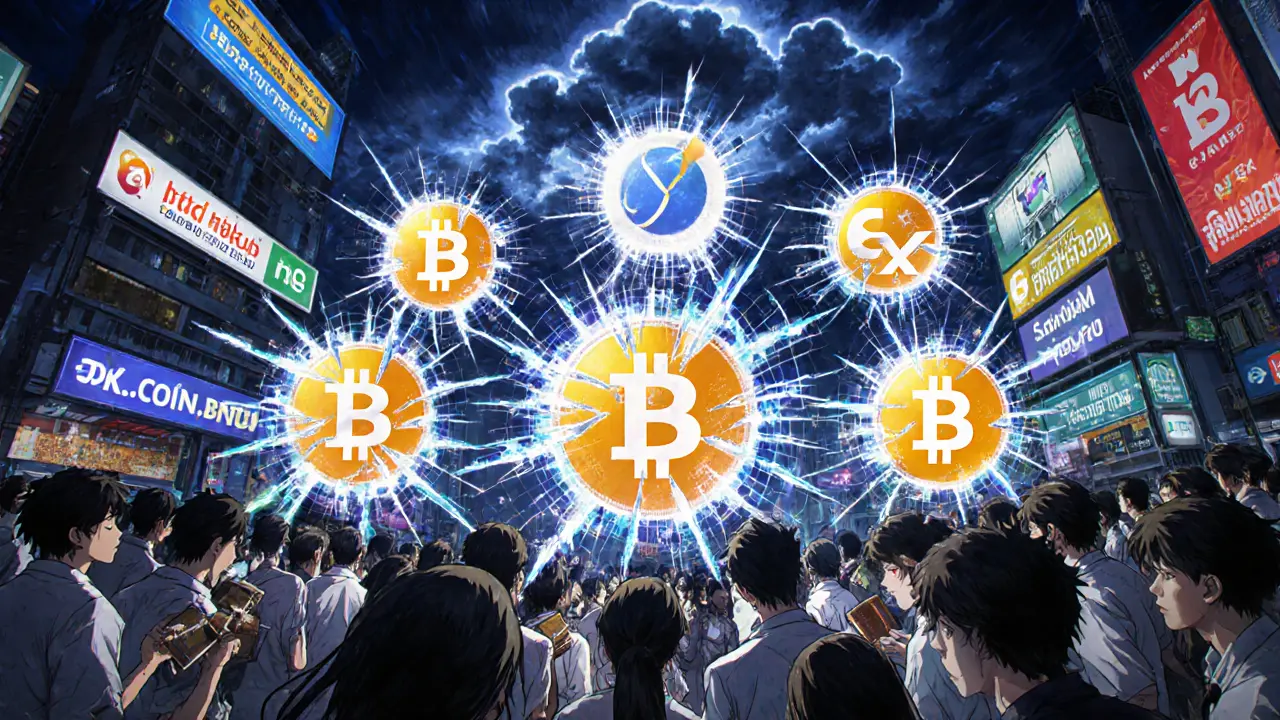

When you hear foreign P2P crypto, peer-to-peer cryptocurrency trading that happens outside traditional banking systems, often across borders. Also known as cross-border P2P crypto, it’s how millions bypass frozen accounts, inflation, and banking limits—without needing a passport or a bank loan. This isn’t theory. It’s daily life in Nigeria, Vietnam, Argentina, and beyond, where people swap USDT for local cash via WhatsApp, Telegram, or apps like Paxful and LocalBitcoins.
What makes foreign P2P crypto, a decentralized way to exchange crypto for fiat using direct buyer-seller matches. Also known as crypto peer trading, it’s the backbone of financial survival in countries with unstable currencies or capital controls. It’s not just about buying Bitcoin. It’s about sending money home, paying for imports, or saving against hyperinflation. In Nigeria, over 30% of adults use P2P crypto to move value—more than use traditional remittance services. And it’s not just emerging markets. In places like Lebanon or Turkey, people use it to protect savings when banks freeze withdrawals.
But here’s the catch: P2P trading, a method where individuals trade crypto directly, often using escrow services to reduce fraud. Also known as direct crypto exchange, it’s powerful—but dangerous if you don’t know the red flags. Scammers prey on newcomers with fake payment screenshots, rigged escrow systems, or fake “verified” sellers. That’s why the posts below dig into real cases: how a Nigerian trader lost $5,000 to a fake MEXC airdrop scam, why a Vietnam-based user got burned by a fake RONDA token, and how a trader in Argentina learned to spot a cash-in-hand trap. You’ll see what works, what fails, and who’s really behind these deals.
These aren’t abstract concepts. They’re real stories from people trading crypto in places where banks won’t let them. You’ll find deep dives into how Nigeria crypto adoption, the highest global rate of peer-to-peer crypto use, driven by economic pressure and grassroots innovation. Also known as African crypto movement, it’s reshaping how global finance operates. connects to platforms like Sovryn and LCX, why Binance Smart Chain airdrops get abused in P2P markets, and how MiCA regulations in Europe are starting to clamp down on unregulated P2P flows. You’ll learn how to protect yourself, where to find trusted traders, and why the same scams pop up everywhere—from Lagos to Lima.

Thailand banned five major foreign P2P crypto platforms in 2025 to fight fraud and money laundering. Only licensed local exchanges can now operate, forcing users to switch and reshaping the country's digital finance future.